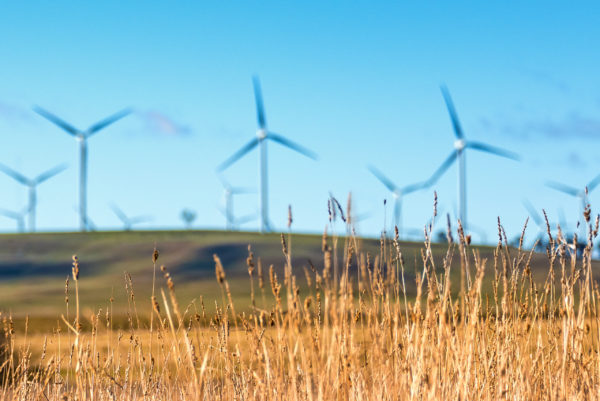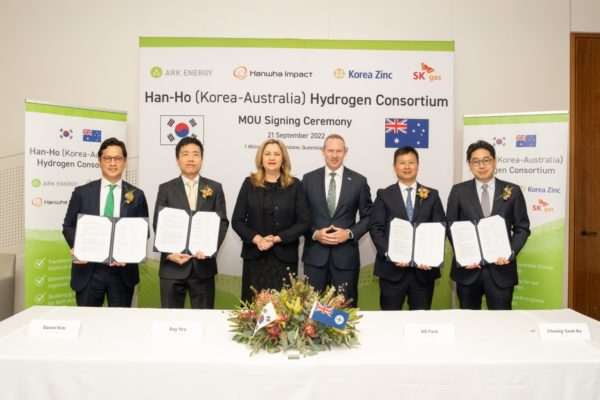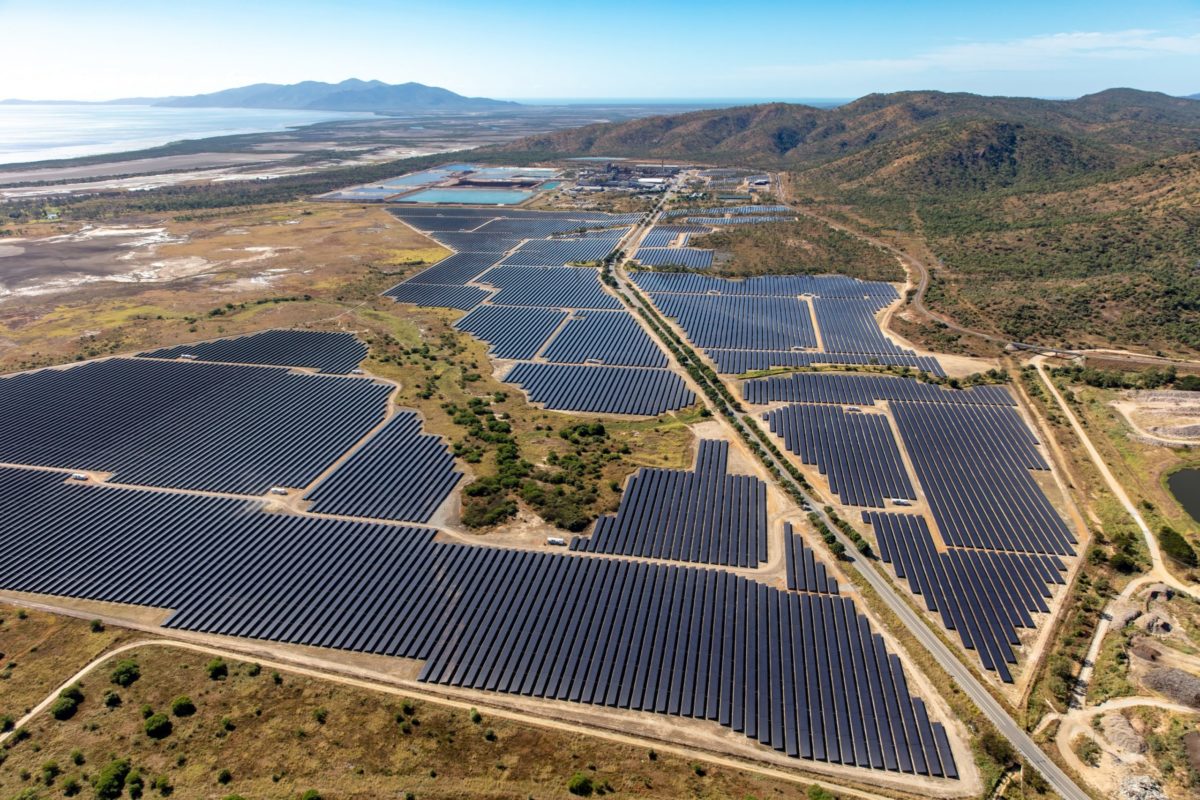A consortium including three of Korea’s largest conglomerate groups has signed a memorandum of understanding (MOU) with the Queensland government with a view to building one of Australia’s largest renewable energy hubs near the coal-mining town of Collinsville to unlock the state’s hydrogen potential and establish a green energy export corridor, connecting northern Queensland to Korea.
The Han-Ho Hydrogen consortium, which comprises Australian-based Ark Energy and its parent company Korea Zinc, as well as petrochemicals group Hanwha Impact and fellow Korean conglomerate SK Gas, are seeking to produce and export more than 1 million tonnes of green ammonia a year to Korea to meet forecast demand as the north Asian nation seeks to meet its climate commitments.
At the heart of the consortium’s plans will be the development of Ark Energy’s Collinsville Green Energy Hub, about 90 kilometres south-west of Bowen, which will have the potential to generate up to 3,000 MW via a mix of wind and solar.
The renewable energy would be used to power electrolysers to produce green hydrogen, which would then be converted to ammonia for export to Korea.
The project is forecast to produce and export more than 1 million tonnes of green ammonia a year from Australia to Korea by 2032.
Ark Energy chief executive officer Daniel Kim said the project has already signed up 12 landholders in the Collinsville area for the renewables hub but he acknowledged there remained “challenges ahead”.
“The scale of what we’re embarking upon doesn’t exist today,” he said. “The shared vision of this consortium is to transform the bilateral relationship between Australia and Korea from one that has been underpinned by resources and fossil fuels to renewable energy and green hydrogen.”

Image: Ark Energy
Korea, which has committed to net zero by 2050, is already the third largest importer of ammonia in the world and the Korea Institute of Economic energy research estimates the nation’s total demand for ammonia will exceed 21 million tonnes by 2030.
Most of the green ammonia to be produced by the Collinsville Green Energy Hub is expected to be absorbed by the consortium members.
“Our partners and our parent company are major players in Korea’s hydrogen economy and have a forecast demand for more than 2 million tonnes of green ammonia per annum from 2030,” Kim said.
The consortium aims to make a final investment decision in 2027 or 2028, with construction expected to take about four years, Kim said.
Queensland Premier Annastacia Palaszczuk said the signing of the MOU is another step forward in the state’s quest to be a hydrogen powerhouse.
“We welcome this major new consortium to Queensland, to accelerate progress in our green hydrogen industry and advance green energy exports to Korea,” she said.
“What you’ll be seeing over the coming decade is large renewable precincts developing in regional Queensland, that is an indisputable fact.”

Image: Ark Energy
The announcement of the proposed 3 GW Collinsville Green Energy Hub is the latest move from Ark Energy which has quickly established itself since its launch in January 2021.
Earlier this year, Ark Energy completed its purchase of Sydney-based renewable energy developer Epuron Holdings in a deal that gives it access to a potential 9 GW pipeline of utility scale wind and solar PV projects.
The buyout of Eporon followed the acquisition of a 30% stake in Acciona Energy’s 923 MW MacIntryre Wind Farm in Queensland which is scheduled to be fully operational by 2024.
Ark Energy is also pursuing plans to develop a renewable hydrogen facility at parent company Korea Zinc’s Sun Metals zinc refinery in Townsville.
The SunHQ hydrogen hub, which will be equipped with a 1 MW electrolyser, is expected to produce about 158 tonnes of green hydrogen per annum, powered by renewable energy from the 124 MW Sun Metals Solar Farm located next to the refinery.
This content is protected by copyright and may not be reused. If you want to cooperate with us and would like to reuse some of our content, please contact: editors@pv-magazine.com.









6 comments
By submitting this form you agree to pv magazine using your data for the purposes of publishing your comment.
Your personal data will only be disclosed or otherwise transmitted to third parties for the purposes of spam filtering or if this is necessary for technical maintenance of the website. Any other transfer to third parties will not take place unless this is justified on the basis of applicable data protection regulations or if pv magazine is legally obliged to do so.
You may revoke this consent at any time with effect for the future, in which case your personal data will be deleted immediately. Otherwise, your data will be deleted if pv magazine has processed your request or the purpose of data storage is fulfilled.
Further information on data privacy can be found in our Data Protection Policy.